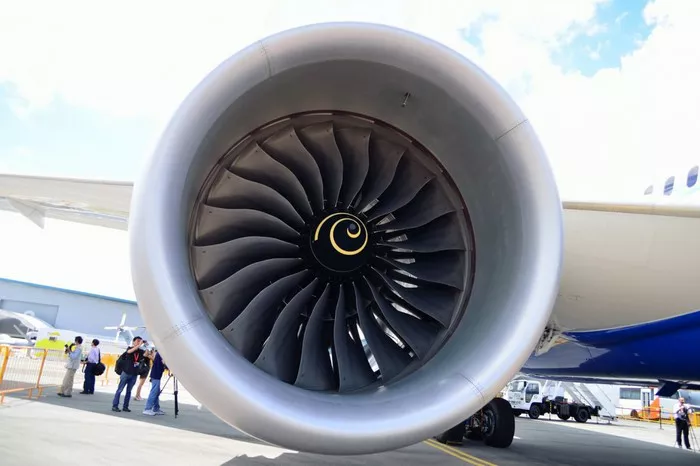Korean Air has selected GE Aerospace engines to power its newly announced order of 20 Boeing 777-9 aircraft and up to 30 Boeing 787-10 aircraft, the company confirmed. The airline has placed an order for GE’s GEnx and GE9X engines, along with a maintenance agreement for the GE9X, marking a significant milestone as the first South Korean carrier to choose the GE9X engine.
The GE9X, developed for the Boeing 777X series, features a 134-inch composite fan—currently the largest in the industry. It is equipped with fourth-generation carbon fiber composite fan blades and a composite fan case. The engine also boasts a high-pressure compressor with a 27:1 pressure ratio, along with ceramic matrix composite components capable of withstanding higher temperatures than traditional metal alloys. These innovations result in improved fuel efficiency, reduced emissions, and enhanced overall performance. The GE9X offers a 10% improvement in specific fuel consumption compared to its predecessor, the GE90-115B.
Russell Stokes, president and CEO of GE Aerospace’s Commercial Engines and Services division, expressed his gratitude, stating, “We’re grateful for the Korean Air team putting its trust in us again. Today’s order represents the next chapter in our long-standing partnership with Korean Air and reaffirms our commitment to support their successful fleet upgrade and expansion.”
In addition to the GE9X, the airline has selected the GEnx engine, which powers the Boeing 787 and 747-8 aircraft. The GEnx engine also features advanced materials and design, including a composite fan case and fan blades, as well as a lean-burning twin-annular pre-swirl (TAPS) combustor, contributing to fuel efficiency and reduced emissions.
Both the GEnx and GE9X engines are certified to operate on Sustainable Aviation Fuel (SAF) blends. Korean Air’s fleet includes a variety of GE and CFM International-powered aircraft, including the GE90-110B/115B, LEAP-1B, and CFM56-7B models. The airline also utilizes GE Aerospace’s Safety Insight flight data monitoring system, which leverages advanced analytics and automation to enhance operational safety.
Related topics:

